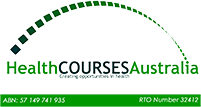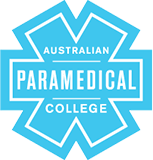
Popular courses in Adelaide
Certificate IV in Mental Health
- There are no mandated entry requirements.






Certificate III in Individual Support (Disability)
- There are no mandated entry requirements.





Diploma of Leadership and Management
- There are no mandated entry requirements.






Certificate IV in Work Health and Safety
- There are no mandated entry requirements.





Certificate IV in Leadership and Management
- There are no mandated entry requirements.




Certificate III in Individual Support (Ageing)
- There are no mandated entry requirements.




Diploma of Human Resource Management
- There are no mandated entry requirements.




Diploma of Project Management
- There are no mandated entry requirements.





Certificate IV in Training and Assessment
- Evidence of relevant skills, knowledge and employment experience


Diploma of Practice Management
- There are no mandated entry requirements.



Certificate III in Health Services Assistance
- There are no mandated entry requirements.


Diploma of Work Health and Safety
- There are no mandated entry requirements.


Certificate III in Health Administration
- There are no mandated entry requirements.
 Foundation Education
Foundation Education
Diploma of Mental Health
- There are no mandated entry requirements.


Certificate IV In Ageing Support
- There are no mandated entry requirements.
 Phillips Institute
Phillips Institute
Diploma of Business (Organisational Development)
- There are no mandated entry requirements.


Diploma of Emergency Health Care
- There are no mandated entry requirements.
 Australian Paramedical College
Australian Paramedical College
Certificate III in Allied Health Assistance
- There are no mandated entry requirements.
 Foundation Education
Foundation Education
Certificate IV in Allied Health Assistance
- There are no mandated entry requirements.
 Foundation Education
Foundation Education
Diploma of Nursing
- There are no mandated entry requirements.
 Southern Cross Education Institute
Southern Cross Education Institute
Frequently Asked Questions
Yes, there are course providers who offer 20 qualification(s) in Adelaide. Find a course provider near you. Once you make an enquiry, a course advisor will get in touch to discuss your study options and course fees.
Written by Courses.com.au Team
There are several campuses within the Adelaide area that provide nursing training. The nearest campus is located right in the center of Adelaide. You can also study a nursing course through online, distance or traineeship learning. Find a course provider that best suits your needs.
Written by Courses.com.au Team
Potential job roles within nursing includes enrolled nurse, aged care nurse or mental health nurse (to name a few). Browse related occupations to find a career that suits your needs.
Written by Courses.com.au Team
Further reading


Certificate III in Pathology Collection: Everything You Need to Know
10th February 2025)
